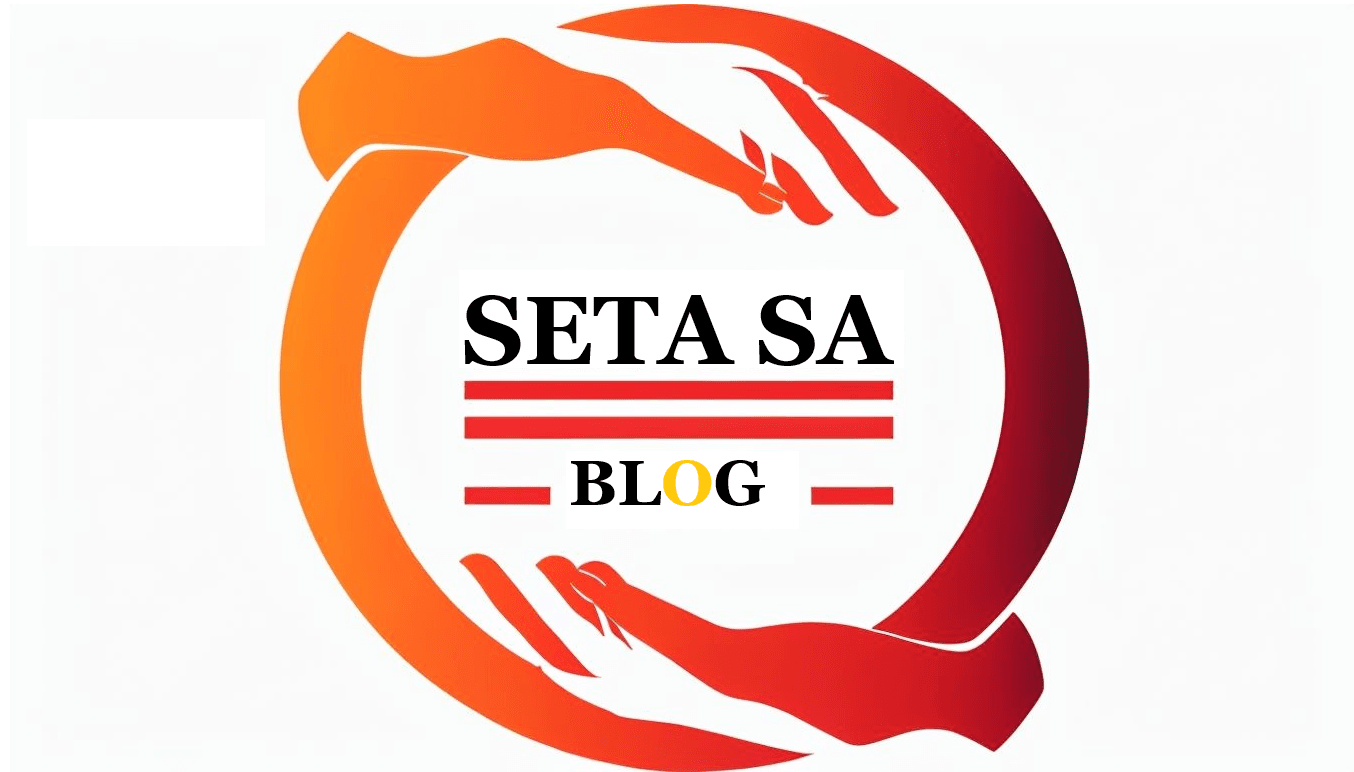10 High-Impact SETA Courses That Transform Careers in South Africa (2025 Guide)
Last month, Sarah from Johannesburg landed a R75,000 salary increase after completing just one SETA course. She’s not alone – thousands of South African professionals are discovering how these government-backed training programs unlock career doors that seemed permanently closed.
The job market has shifted dramatically. While your colleagues debate economic uncertainty, smart professionals are quietly building skills that make them indispensable. SETA (Sector Education and Training Authority) courses offer something unique: industry-recognized certifications that employers actually value, often at a fraction of private training costs.
Having worked with over 500 career changers across Gauteng, Western Cape, and KwaZulu-Natal, I’ve witnessed firsthand how the right SETA qualification can catapult someone from stagnant to sought-after. The professionals who thrive aren’t necessarily the most experienced – they’re the ones who strategically choose skills that align with South Africa’s growing sectors.
Before exploring specific courses, it’s crucial to understand what SETA qualifications entail and how they differ from traditional education pathways.
Why SETA Courses Outperform Traditional Qualifications
Before diving into specific courses, let’s address what makes SETA training different. Unlike generic online courses or expensive private colleges, SETA programs are designed with direct input from industry leaders. Each curriculum reflects real workplace challenges and emerging skill gaps that employers struggle to fill.
More importantly, SETA qualifications carry weight with South African employers. They recognize these certifications because they often help develop them. When a mining company in Mpumalanga or a fintech startup in Cape Town sees a SETA certificate on your CV, they know you’ve learned relevant, applicable skills – not theoretical concepts.
1. Project Management Professional Certification
Average salary increase: 35-50% Time investment: 6-12 months
Project management isn’t just about Gantt charts and meeting schedules anymore. Modern project managers orchestrate digital transformations, manage remote teams across time zones, and navigate constant change while delivering measurable results.
The SETA project management track covers both traditional methodologies (PRINCE2, PMBOK) and agile frameworks (Scrum, Kanban) that South African companies increasingly adopt. You’ll master stakeholder management techniques that work in our unique business culture, where relationship-building often determines project success.
Real impact: Thabo from Durban used his SETA project management certification to transition from accounting to leading IT implementations at a major retailer. His salary jumped from R320,000 to R485,000 within 18 months.
Best for: Mid-level professionals in any industry who coordinate people, resources, or timelines.
2. Digital Marketing Specialist Programme
Average salary increase: 40-60% Time investment: 4-8 months
Every South African business – from spaza shops to JSE-listed companies – needs digital marketing expertise. Traditional advertising budgets have shifted online, creating massive opportunities for skilled digital marketers who understand local market dynamics.
This SETA program goes beyond basic social media posting. You’ll learn conversion optimization for South African consumers, mobile-first strategies (considering our high mobile usage rates), and how to navigate platform restrictions that affect local businesses.
The curriculum includes hands-on experience with Google Ads, Facebook Business Manager, and emerging platforms like TikTok for Business. More crucially, you’ll understand attribution modeling and ROI measurement – skills that separate successful digital marketers from social media enthusiasts.
Best for: Marketing coordinators, business owners, or career changers who want to enter the high-growth digital sector.
3. Business Analysis Excellence Track
Average salary increase: 25-40% Time investment: 6-9 months
Business analysts serve as translators between business needs and technical solutions. In South Africa’s evolving economy, where companies constantly adapt to regulatory changes and market shifts, skilled business analysts are invaluable.
This SETA program emphasizes practical tools like process mapping, requirements gathering, and stakeholder interview techniques. You’ll work with real case studies from South African companies, learning to navigate challenges like legacy system integration and compliance with local regulations (POPIA, B-BBEE requirements).
Best for: Professionals with analytical minds who enjoy solving complex problems and facilitating change.
4. Advanced Supply Chain Management
Average salary increase: 30-45% Time investment: 8-12 months
Supply chain disruptions during COVID-19 highlighted how critical these professionals are. From mining operations in the Northern Cape to manufacturing hubs in Gauteng, companies need supply chain managers who understand global complexities and local realities.
The SETA supply chain program covers traditional logistics plus modern challenges: sustainability reporting, supplier diversity (crucial for B-BBEE compliance), and technology integration. You’ll learn to optimize everything from procurement processes to last-mile delivery in South African contexts.
Best for: Operations professionals, procurement specialists, or logistics coordinators ready for senior roles.
5. Strategic Human Resource Management
Average salary increase: 28-38% Time investment: 6-10 months
HR has evolved from administrative function to strategic business partner. Modern HR professionals shape company culture, drive transformation initiatives, and ensure compliance with South Africa’s complex employment laws.
This SETA program covers contemporary HR challenges: remote workforce management, diversity and inclusion strategies that go beyond compliance, and data-driven decision making. You’ll master employment equity planning, skills development levy optimization, and workplace wellness programs.
Best for: HR coordinators, team leaders, or business owners who manage people and want to professionalize their approach.
6. Financial Management and Analysis
Average salary increase: 35-50% Time investment: 8-12 months
Financial literacy separates successful businesses from failures, especially in South Africa’s challenging economic environment. This SETA program develops practical financial management skills that apply across industries and company sizes.
Beyond basic accounting, you’ll learn cash flow forecasting, investment analysis, and risk management tailored to South African market conditions. The program includes modules on foreign exchange management, tax optimization strategies, and financial reporting requirements.
Best for: Small business owners, middle managers, or professionals wanting to transition into finance roles.
7. Cybersecurity and Information Technology
Average salary increase: 45-70% Time investment: 6-15 months depending on specialization
Cybersecurity skills are among the most valuable in today’s job market. With cyber attacks increasing 300% in South Africa over recent years, skilled IT security professionals command premium salaries across all sectors.
SETA IT programs offer specializations in ethical hacking, network security, cloud architecture, and data protection (including POPIA compliance). You’ll gain hands-on experience with industry-standard tools and real-world scenarios based on threats facing South African organizations.
Best for: IT professionals wanting to specialize, or career changers with strong analytical skills entering the technology sector.
8. Leadership Development and Change Management
Average salary increase: 30-55% Time investment: 6-9 months
Leadership skills determine who gets promoted and who stays in the same role for years. This SETA program develops authentic leadership capabilities that work in South Africa’s diverse workplace environments.
You’ll learn to navigate cultural sensitivity, manage multi-generational teams, and lead transformation initiatives. The program emphasizes emotional intelligence, conflict resolution, and communication styles that resonate across different cultural backgrounds.
Best for: Senior professionals preparing for executive roles, or natural leaders wanting to formalize their skills.
9. Customer Experience Excellence
Average salary increase: 25-35% Time investment: 4-6 months
Customer experience has become the primary differentiator in competitive markets. Companies that deliver exceptional customer experiences grow faster and achieve higher profitability than those focused solely on price competition.
This SETA program covers customer journey mapping, service recovery strategies, and digital customer experience optimization. You’ll learn to implement customer feedback systems and measure satisfaction in ways that drive business improvements.
Best for: Customer service professionals, sales representatives, or managers responsible for customer-facing teams.
10. Sales Performance and Revenue Optimization
Average salary increase: 40-65% Time investment: 4-8 months
Top sales professionals earn more than most middle managers, and skilled sales people always find opportunities regardless of economic conditions. This SETA program develops consultative selling skills that work in South Africa’s relationship-focused business culture.
Beyond traditional sales techniques, you’ll master CRM systems, sales analytics, and digital sales processes. The program includes modules on B-BBEE procurement processes and selling to government entities – significant opportunities in the South African market.
Best for: Sales representatives wanting to increase earnings, business owners who need to sell their services, or professionals transitioning into sales roles.
Choosing Your SETA Path: A Strategic Approach
The most successful SETA course graduates don’t choose randomly – they align their selection with market demands and personal strengths. Consider these factors:
Market demand: Check job postings in your target location. Digital marketing and cybersecurity skills are highly sought after nationwide, while supply chain management offers excellent opportunities in Gauteng and Western Cape.
Salary potential: IT specializations typically offer the highest immediate returns, but leadership and project management skills provide long-term career growth across industries.
Time investment: If you need quick results, consider digital marketing or customer service programs. For substantial career changes, invest in longer programs like financial management or business analysis.
Industry alignment: Match courses to growing sectors in your region. Mining areas benefit from supply chain and project management skills, while major cities offer opportunities across all specializations.
Maximizing Your SETA Investment
Success with SETA courses requires more than just attendance. Based on tracking hundreds of graduates, here are strategies that separate high achievers from the rest:
Start networking immediately: Connect with classmates, instructors, and guest speakers. Many job opportunities come through these relationships rather than traditional applications.
Document your learning: Create a portfolio showcasing projects, case studies, and practical applications. Employers want evidence of your capabilities, not just certificates.
Seek practical application: Volunteer to implement new skills at your current job, even in small ways. This demonstrates initiative and provides real-world experience for interviews.
Stay current: Industries evolve rapidly. Follow thought leaders, join professional associations, and continue learning beyond your formal program.
Many successful graduates also complement their studies by understanding how to get SETA accredited if they plan to offer training services themselves.
The Reality Check: What SETA Courses Can’t Do
While SETA courses offer significant advantages, they’re not magic solutions. Success requires commitment, practice, and strategic career planning. These programs work best for professionals who:
- Take initiative rather than wait for opportunities
- Apply learning practically rather than just collecting certificates
- Network actively and build professional relationships
- Continue developing skills beyond formal programs
If you’re expecting instant transformation without effort, SETA courses won’t deliver. But for motivated professionals willing to invest time and energy, they provide exceptional value and career acceleration opportunities.
Taking Action: Your Next Steps
The professionals who benefit most from SETA courses act quickly while maintaining strategic thinking. Research shows that people who start within 30 days of learning about opportunities are 5 times more likely to complete programs successfully.
Start by identifying 2-3 courses that align with your goals and market opportunities in your area. Contact SETA providers directly – they often have insights about job market trends and employer partnerships that aren’t publicly available.
Remember: your career trajectory depends on decisions you make today. While others debate and delay, position yourself among the professionals who recognize opportunity and act decisively.
The best time to plant a tree was 20 years ago. The second-best time is now. Your career transformation starts with the next step you take.






